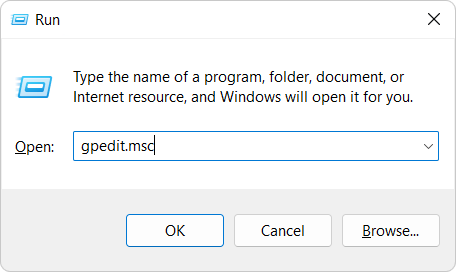Microsoft RemoteApp is a feature of Microsoft’s Remote Desktop Services that allows individual programs to be run remotely using a Microsoft Remote Desktop Client. Instead of accessing the entire remote desktop, Microsoft RemoteApp allows users to see and interact with just the application as if they were running on the end-user’s device.
Combining Microsoft Remoteapp with Thinfinity® Remote Workspace you can publish any Windows Application on the web and access it from any device using a HTML5 browser
You can configure Thinfinity® Remote Workspace to publish any Windows application throughout the web in less than 5 minutes, and in this tutorial we are going to teach you how to do it.
You don’t need to have any programming skills or make any modifications to the Windows application source code to accomplish it.
(Remember that RemoteApp is only available for Windows Server with Remote Desktop Services installed, so we recommend checking your environment before you start following this tutorial)
Let’s get started:
- First, open the Thinfinity® Configuration Manager:

- Click on the “Access Profiles” tab, and press “Add”. For this guide, we’ll be creating an “RDP” connection:

- Configure the Access Profile with a “Name”, then on “Computer” enter the IP Address or domain name of the server, and on “Credentials” enter the Windows credentials to authenticate to said server:

- For testing purposes, check the “Allow anonymous access” option:

- Under the ‘Program’ tab, choose the “Execute as RemoteApp” option.
Then, point both the “Program path and the filename” and “Start in the following folder” fields to the executable’s directory and its root folder, respectively.
You can also pass arguments to your application in the “Arguments” field:

- For testing purposes, mark the check-box for “Allow anonymous access” under the “Authentication” tab:

- Press “Apply”:

- You can open the published application by going to http://127.0.0.1:Port and clicking on the newly created Profile:

- If you start multiple RemoteApps, you’ll find a dock menu at the bottom of the browser screen, this allows you to toggle between different applications of the same connection.
You can resize the App’s windows and be able to see more than one at the same time.
You can also pin this menu to be always on top, or unpin it to automatically hide it.
If you get an “access denied” error, you would need to enable a group policy to allow unlisted programs to be started. To this end, open the ‘Group Policy Editor’ by going to ‘Start > Run > gpedit.msc’:

- On the ‘Group Policy Editor’ navigate to:
“Computer Configuration > Administrative Templates > Windows Components > Remote Desktop Services > Remote Desktop Session Host > Connections > Allow users to connect remotely by using Remote Desktop Services”

- Double-click on this policy and then click on the check-box next to “Enabled“:

- Afterwards, you’ll have to update the group policies. In order to do this, call “gpupdate /force” from a “Command Prompt”’ window elevated as an Administrator:

- If you want to give your users quick access to your applications, you can create a desktop shortcut to the URL of Thinfinity® Remote Workspace with the Virtual Path of the application. Here’s an example:

- To ensure these changes are applied, you can go to “Start > Run > services.msc” and restart the “Thinfinity Service Manager“:

- You can check our live demo and experience this feature yourself. You will be able to test this feature with the following Profiles:
- Desktop
- Notepad
- Paint

That’s it!
You can explore our other remoting and web-enabling solutions, enjoy our free trials, or request a custom demo HERE. No commitment!
Have any questions?
Book a call today to learn more about how Thinfinity can help your organization. We are always available to guide you and provide the best solution based on your specific needs.
Recent posts
The post Publish any Windows application to the web with Thinfinity Remote Workspace appeared first on Cybele Software, Inc..



































